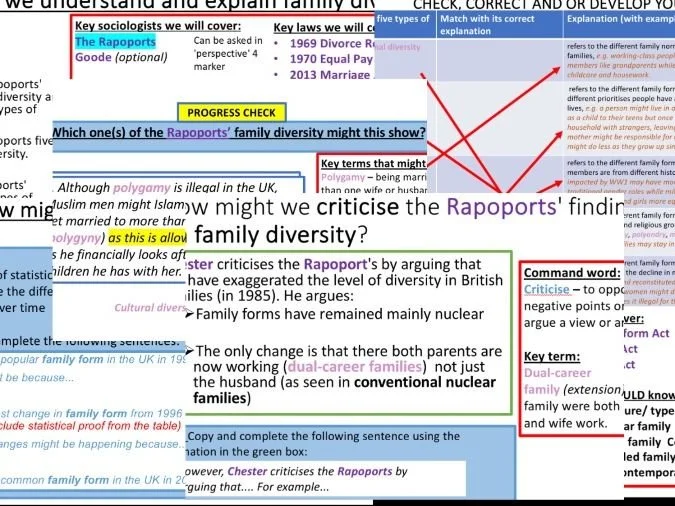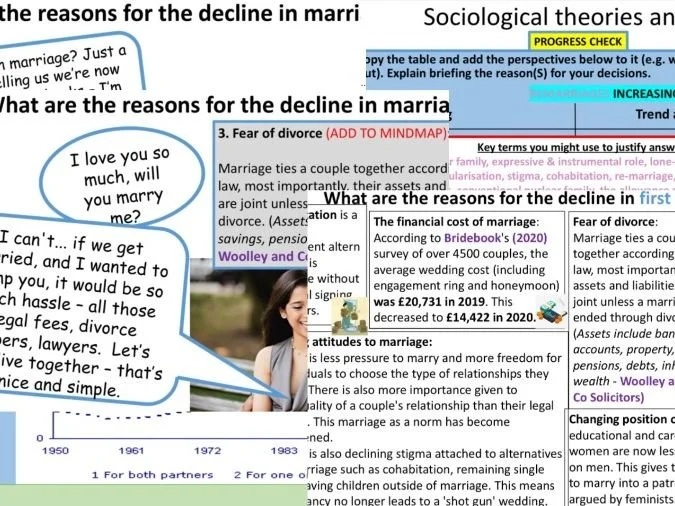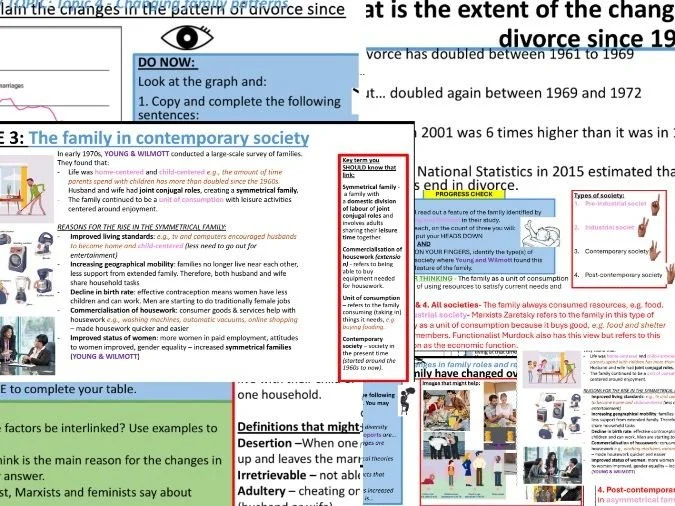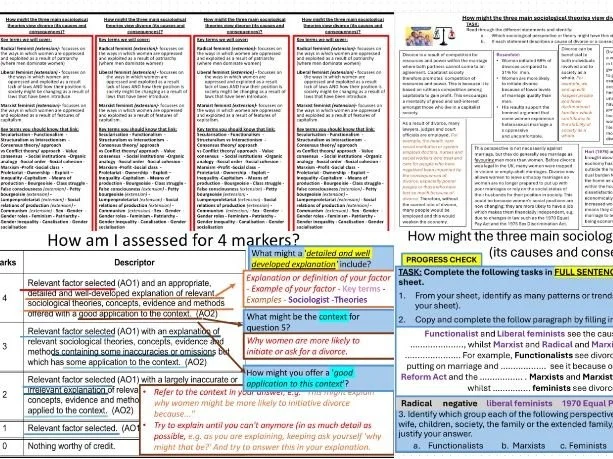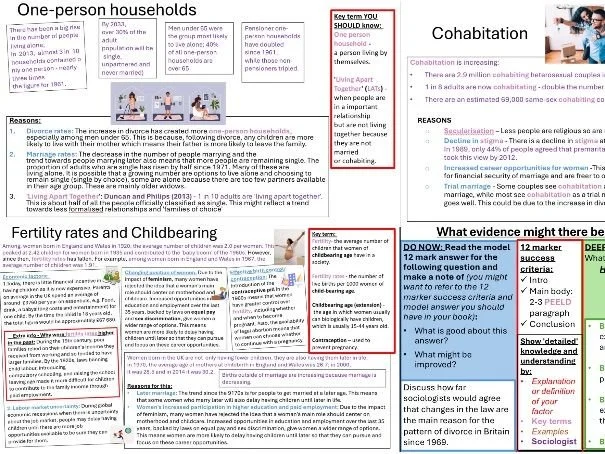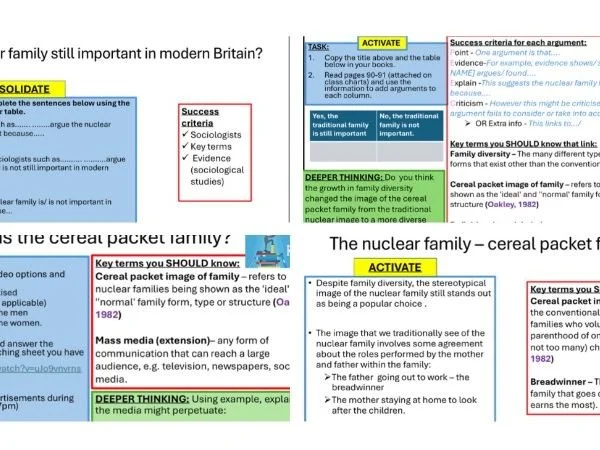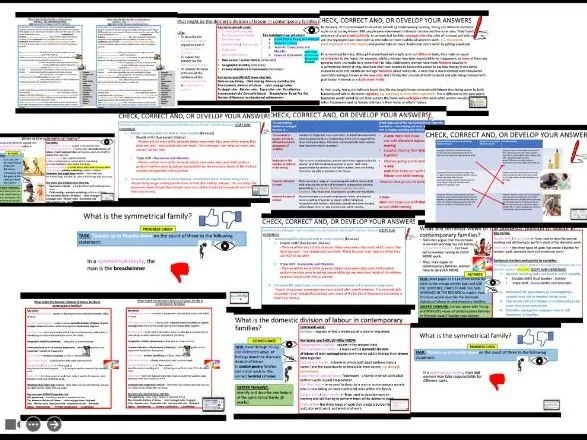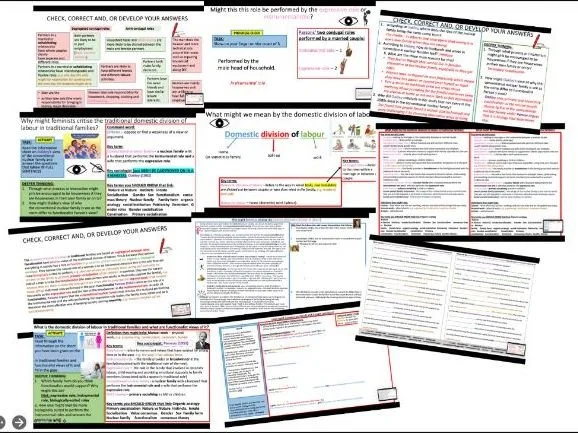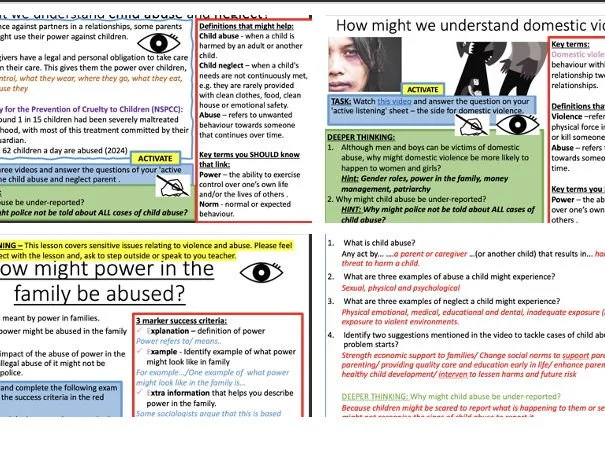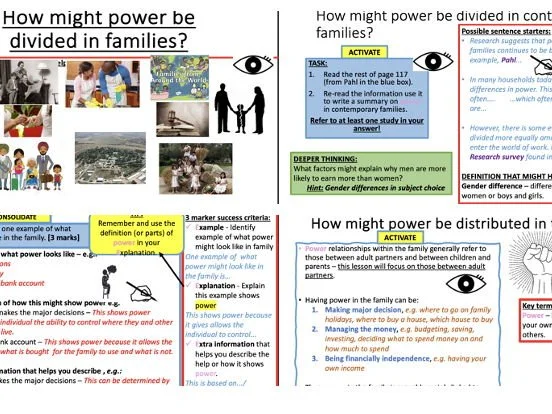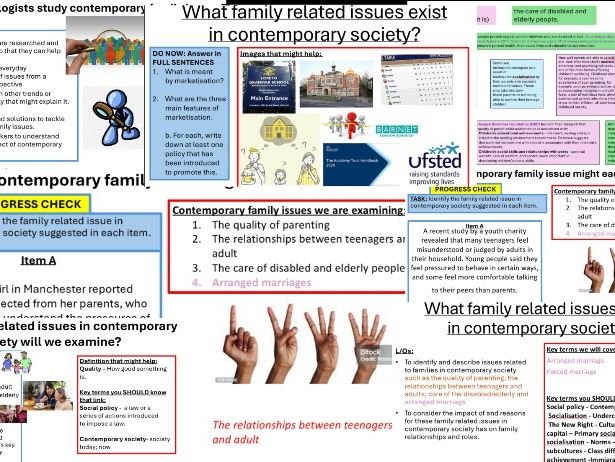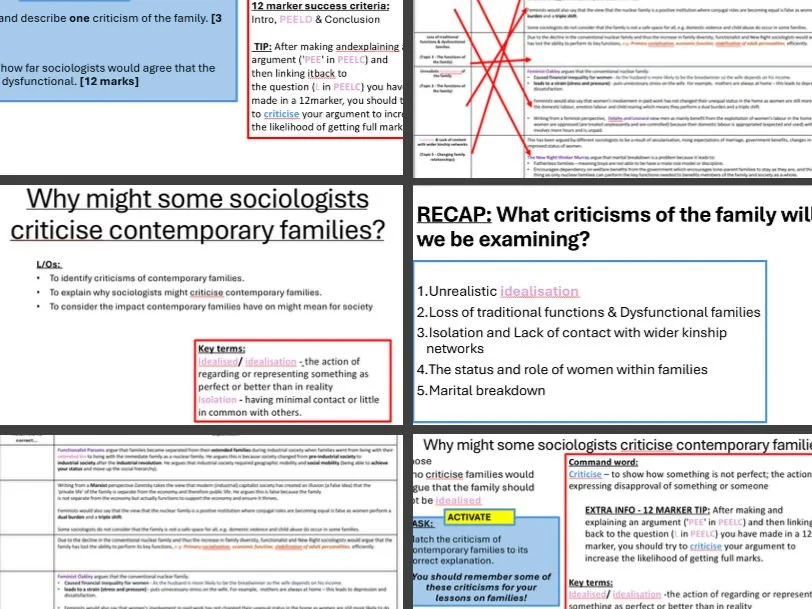 Image 1 of 1
Image 1 of 1


BUNDLE - AQA GCSE Sociology: Families Topic 5- Changes in the family
L1 AQA GCSE Sociology: Family-Changes in the family over time
Detailed lesson with lots of scaffolding based on adaptive teaching that help students understand changes in the family over time.
-Includes a ‘teaching to all’ activity
-ANSWERS TO MOST ACTIVITIES INCLUDED
-Includes a item 4 marker on Young and Wilmott’s study with lots of scaffolding to help students answer it.
Covers the following key terms: Pre-industrial society, Industrial society, Unit of production, Asymmetrical family, The Principle of Stratified diffusion, Home-centered, Work-centered, Child-centered.
Covers the following key terms that you should already know: Pre-industrial society, Industrial society,
Contemporary society, Agriculture, Industries, Industrial revolution, Unit of production, Unit of consumption, Extended family, Social mobility, Ascribed status, Means of production, Geographic mobility, Symmetrical family, Commercialisation of housework.
Covers the following sociologists:Young & Wilmott.
ANSWERS TO MOST MAIN ACTIVITIES INCLUDED
Makes references to key terms students should know – Promotes a spiral curriculum by making links to key terms that students might have previously been taught that link to this lesson.
L2 AQA GCSE Sociology: Family- Changes in Family Relationships
Detailed lesson with lots of scaffolding based on adaptive teaching that help students understand changes in family relationships.
Covers the following key terms: Kin, Kinship, Extended kin, Democratic relationships, Child cantered, Infant morality.
Covers the following sociologists:Young & Wilmott, Aries, Shorter, 1918 Education Act, Brannen, Pyror and Tinder, Charles et al (2008a.), Charles et al (2008b.), Bhatti
Makes references to key terms students should know- Promotes a spiral curriculum by making links to key terms that students might have previously been taught that link to this lesson.
Starter is keyword bingo and requires teacher to know the definitions of key terms previously learnt in the family unit.
ANSWERS TO SOME ACTIVITIES INCLUDED
RESOURCES CAN BE FOUND AT THE END OF THE PPT
L1 AQA GCSE Sociology: Family-Changes in the family over time
Detailed lesson with lots of scaffolding based on adaptive teaching that help students understand changes in the family over time.
-Includes a ‘teaching to all’ activity
-ANSWERS TO MOST ACTIVITIES INCLUDED
-Includes a item 4 marker on Young and Wilmott’s study with lots of scaffolding to help students answer it.
Covers the following key terms: Pre-industrial society, Industrial society, Unit of production, Asymmetrical family, The Principle of Stratified diffusion, Home-centered, Work-centered, Child-centered.
Covers the following key terms that you should already know: Pre-industrial society, Industrial society,
Contemporary society, Agriculture, Industries, Industrial revolution, Unit of production, Unit of consumption, Extended family, Social mobility, Ascribed status, Means of production, Geographic mobility, Symmetrical family, Commercialisation of housework.
Covers the following sociologists:Young & Wilmott.
ANSWERS TO MOST MAIN ACTIVITIES INCLUDED
Makes references to key terms students should know – Promotes a spiral curriculum by making links to key terms that students might have previously been taught that link to this lesson.
L2 AQA GCSE Sociology: Family- Changes in Family Relationships
Detailed lesson with lots of scaffolding based on adaptive teaching that help students understand changes in family relationships.
Covers the following key terms: Kin, Kinship, Extended kin, Democratic relationships, Child cantered, Infant morality.
Covers the following sociologists:Young & Wilmott, Aries, Shorter, 1918 Education Act, Brannen, Pyror and Tinder, Charles et al (2008a.), Charles et al (2008b.), Bhatti
Makes references to key terms students should know- Promotes a spiral curriculum by making links to key terms that students might have previously been taught that link to this lesson.
Starter is keyword bingo and requires teacher to know the definitions of key terms previously learnt in the family unit.
ANSWERS TO SOME ACTIVITIES INCLUDED
RESOURCES CAN BE FOUND AT THE END OF THE PPT

